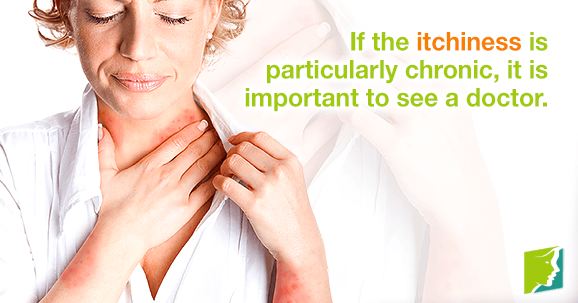Dry skin and eyes can be incredibly uncomfortable and distressing, and may be caused by a variety of different factors. People who suffer from these conditions will naturally want to find effective and safe solutions. Keep reading to find out more about itchy skin and eyes and how to cope with them.
What Is Itchy Skin?
Itchy skin often results from dryness, and can also be accompanied by scaling or cracking. Although some people have naturally drier skin than others, lifestyle habits and environment also play a role in the development of dry and itchy skin. It can occur anywhere on the body, but more often appears on the legs, arms, and abdominal area.
Coping with Itchy Skin
Your doctor can prescribe you creams or medicines, depending on the cause of your itchy skin. However, there are also a few lifestyle changes you can make that will complement medications and prevent dry skin in the long term.
Shower every other day instead of daily to prevent the hot water and products from drying out the skin.
- Keep showers warm rather than hot, as hot water can strip the skin of its natural oils.
- Use a moisturizing soap or oil to wash your body.
- Avoid scrubbing skin too harshly, as this will only inflame and irritate it.
- Pat your skin dry with a soft towel, as rubbing it dry might inflame it.
- Use a moisturizer or oil immediately after showering.
- Drink plenty of water - hydration occurs best from the inside.
Itchy Eyes
Itchy eyes might be accompanied by soreness, redness, or inflammation, and can be caused by an infection, a foreign body, or environmental pollutant irritating the eye, or by the eyes becoming dry. Itchy eyes often occur due to overtiredness or dehydration, so aren't always a cause for concern, and the itchiness may go away without intervention. However, if the itchiness is accompanied by any kind of swelling, pain, or is chronic, see a doctor as soon as possible.
Coping with Itchy Eyes
As with itchy skin, there are many reasons it might occur, so treatment will depend on the cause. If it's due to an infection or long-term condition, then medication prescribed by your doctor will be available.
However, there are things you can do to prevent eye itchiness:
Try not to touch the eyes. This is a preventative measure to stop irritants from getting into the eye. This is particularly important if you have been handling chemicals (for example, those found in household cleaners). Other common irritants that may be on your hands include spicy foods such as onions or chili.
Wash eyes with cold water immediately if you suspect a chemical or object has come into contact with it.
If eyes are itchy, avoid wearing eye makeup until it has passed.
Make sure any object or substance that comes into contact with the eye is clean.
- If it is due to overtiredness, sleep is sometimes the only thing that will help.
Itchy skin and eyes are unpleasant and uncomfortable, and should be treated as soon as possible in order to avoid further discomfort or damage. This is especially important in the case of itchy eyes, as eyes are very sensitive and easily damaged. If you have any concerns about your itchy skin or eyes, then talk to a doctor.
For further information on how to handle this and other menopausal symptoms click here.
Sources
- National Health Service UK. (2014). Blepharitis - Treatment. Retrieved November 20, 2014, from http://www.nhs.uk/Conditions/Blepharitis/Pages/Treatment.aspx
- National Institutes of Health. (2012). Dry skin. Retrieved November 20, 2014, from http://www.nlm.nih.gov/medlineplus/ency/article/003250.htm




